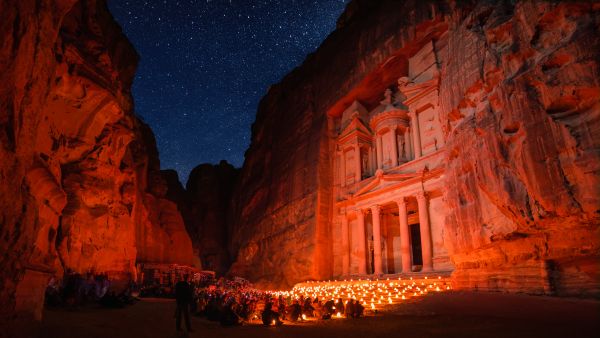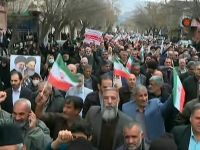For artists recording new music, consulting academic journals and learning an archaic language are not typically part of the creative process. Yet, for Jordanian classical singer Zeina Barhoum, the work behind her upcoming song and music video, titled “Petra”, involved research, expert collaborators and the study of Nabataean Aramaic.
The new piece features a combination of Nabataean Aramaic, Arabic and English, Barhoum told The Jordan Times during a phone interview on Saturday.
As a musician who performs on stages around the world with classical singers such as Andrea Boticelli, Barhoum said that she often finds herself mentally diving into history as part of her musical process.
So thrilled to be sharing a snippet from what's yet to come. "Petra", a song in three languages: English, Nabatean Aramaic and Arabic. The full song and musical feature film is in the works and coming real soon ❤ @VisitJordan @MOTA_Jordan @UNESCOarabic#petra #song #Jordan pic.twitter.com/SpOuiuuznQ
— Zeina Barhoum (@Zeinabarhoum) August 31, 2022
“I do consider myself a time traveller as an artist. I feel like I go back in time with every composer and the story they tell,” she remarked.
During the COVID-19 pandemic, she focused on original musical compositions, with Barhoum, an Amman native, drawing inspiration for “Petra” from her fascination with “what once was life” in this area of her homeland.
“There’s always a story behind everything,” Barhoum commented, noting her dedication to ensuring a high degree of accuracy for every element of the piece. She wants her audience, much like herself, to be able to step “into the history of a place”, and “imagine [myself] being there at the time”.
The music video, which she describes as “a short musical feature film”, showcases the singer’s attention to detail, featuring historically accurate costumes, jewellery, coinage, food, sculptures, scripting, titles, and even mannerisms and gestures gleaned from archaeological research on the Nabataean capital.
???? ????? ?? ????, ???? ?????? ?? ??? ?????, ???? ?? ???? ?#wingsoflove #thealbum #Jordan #World #IndependenceDay pic.twitter.com/IEq4JzHkRh
— Zeina Barhoum (@Zeinabarhoum) May 25, 2022
“I just wanted to do it right and perfect it as much as possible so that when I do perform, we do the best that we can,” the singer said.
The song’s accompanying video features a fictitious love story of ancient royalty to tell the overarching story of Nabataean Petra. The story itself heavily references historical and archaeological fact, but does not have any basis itself in the archaeological record, she added.
For Barhoum, the medium of a love story is the perfect method through which to convey her ultimate message of love, peace and togetherness in concert with her passion for Petra’s history. She noted that the Nabataeans themselves were known to be a relatively peaceful culture that focused on travel, astronomy and trade.
“Though the kingdom has fallen, love prevails; and that history lasts until today with the remains of the Treasury at Petra. It tells us the story of the people that were living there, who left behind something really beautiful,” Barhoum said.
Petra, Jordan
— TimesTravel (@TOItravel) September 8, 2022
Petra, which served as capital of the Nabataean Empire from 400 BCE to 106 CE, remained abandoned for centuries after being rediscovered in the 1800S. This great city was built and carved into Jordan’s sandstone cliff faces. pic.twitter.com/pHlFGa9Dxe
Ultimately, Barhoum wants listeners “to have the idea of love in their minds, and for it to linger”.
In addition to her ongoing projects, Barhoum is the founder of the first opera festival in the Arab world, which she noted would return to Amman for the first time post-pandemic in November.
As for “Petra” and its “musical feature film”, Barhoum said that they will be released in mid-to-late October across all streaming platforms.








